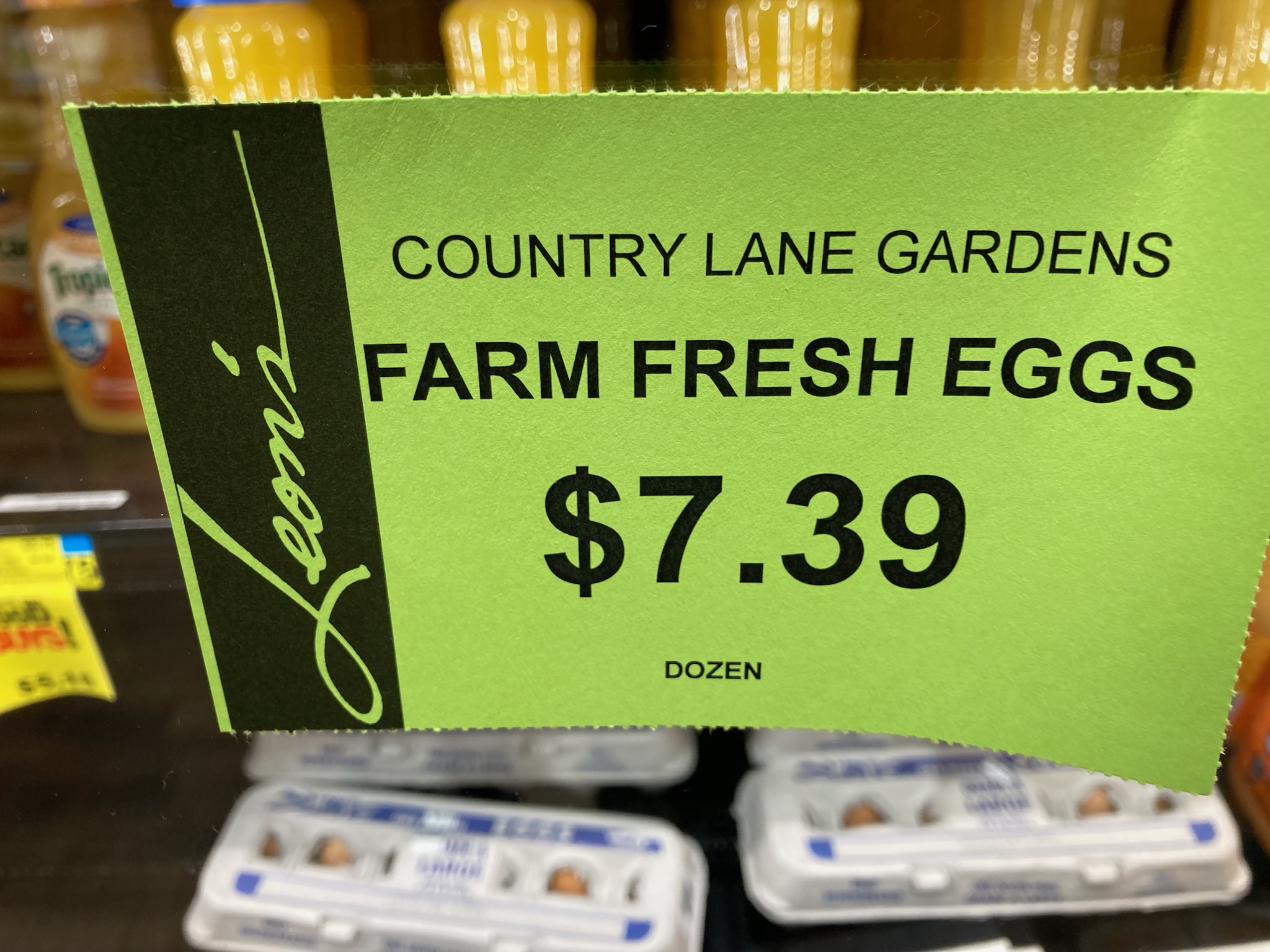NEBRASKA LEGISLATURE
The official site of the Nebraska Unicameral Legislature

Sen. Steve Erdman
District 47
The content of these pages is developed and maintained by, and is the sole responsibility of, the individual senator's office and may not reflect the views of the Nebraska Legislature. Questions and comments about the content should be directed to the senator's office at serdman@leg.ne.gov
November 28th, 2022
Did you enjoy your Thanksgiving dinner this year? Perhaps, you noticed that this year’s menu may not have include deviled eggs. That’s because grocery store shelves have been empty and grocers have been struggling to find eggs to sell.
Nebraska has been the second hardest state hit by the avian bird flu this year. We are second only to Iowa. Because a new outbreak of the avian bird flu was detected in Dixon County in Northeast Nebraska last Saturday, the State will now have to euthanize another 1.8 million egg-laying hens.
According to Wells Fargo, the price of eggs has already jumped 32 percent this year. That’s a very significant increase, especially when you compare the price of eggs to the price of fruits and vegetables which have only risen seven percent this year.
Grocers are blaming their egg shortages on the avian bird flu, which continues to wipe out millions of Nebraska’s chickens. Prior to the current outbreak in Dixon County, Nebraska had already euthanized some 6.8 million chickens. But the egg shortage is also a national crisis. So far this year 50 million chickens have had to be euthanized in 46 states. Iowa had to put down 15.5 million birds.
But blaming the egg shortage entirely upon the avian bird flu doesn’t exactly tell the whole story. In recent years it has become popular for states to ban the sale of eggs from caged hens; thus, reducing the number of eggs for sale. Seven states have already passed laws to ban the sale of eggs from caged chickens and Colorado is set to go next.
Colorado legislators passed HB20-1343 a couple of years ago, which is an Act forbidding the sale of eggs from caged hens beginning January 1, 2023. Because Colorado is home to some six million egg producing hens, the law had to be modified to allow farm owners more time to make the transition to cage-free housing. Farm owners in Colorado now have two years to install scratch areas, perches, nesting boxes, and areas for dust bathing in order to comply with their new state law. Nevertheless, by 2025 all eggs for sale in Colorado will come from cage-free hens.
Because seven states have already enacted these kinds of new cage-free egg laws, it is difficult to know how much this kind of legislation has contributed to the current egg shortage. Those states which have already enacted laws against selling caged-eggs are Arizona, California, Massachusetts, Michigan, Nevada, Oregon, and Washington. What we do know, though, is that these new laws are not helping the current situation.
Adding insult to injury, is the fact that some people have already begun to hoard eggs. Some people are buying eggs in order to hoard them for later consumption. The current egg shortage is rapidly turning out to look very similar to the toilet paper shortage of 2020, and that is not good.
Eggs are an important staple in the American diet. Eggs have always been cheap. They are also an excellent source of protein and other important nutrients, such a B and D vitamins. So, whenever the price of eggs goes up, it affects those with low incomes the most. Many Americans simply cannot afford to pay exorbitant prices for a carton of cage-free eggs.

Sen. Steve Erdman
P.O. Box 94604
Lincoln, NE 68509
(402) 471-2616
Email: serdman@leg.ne.gov
- Column (379)
- District Info (8)
- Events (6)
- Opinion (2)
- Press Releases (13)
- Uncategorized (4)
- Welcome (1)
-
Appropriations
Committee On Committees
Rules
Building Maintenance

Streaming video provided by Nebraska Public Media